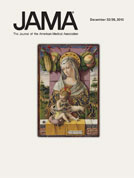 The journal Orthopedics is retracting a paper by Chinese researchers who appear to have been a little to hasty to submit their manuscript.
The journal Orthopedics is retracting a paper by Chinese researchers who appear to have been a little to hasty to submit their manuscript.
Titled “Comparison of the mini-midvastus with the mini-medial parapatellar approach in primary TKA,” the October 2010 paper purported to describe a prospective, randomized study comparing two approaches to total knee arthroplasty, or knee replacement surgery. The authors, from First Affiliated Hospital of Suzhou University, stated that “all knees were implanted with the same posterior-stabilized prosthesis by the same surgeon,” a Dr. Tang.
Having claimed to have separated the effects of the surgery from those of the prosthetic — in this case, the Genesis II device from Smith & Nephew — the authors said that the study was able to demonstrate that “the early clinical results are similar between the mini-midvastus and mini-medial parapatellar approach. The mini-medial parapatellar approach is easier to initially apply and provides better visualization for TKA.”
Except that it didn’t. Continue reading TKO for knee replacement paper, but notice raises more questions than it answers






